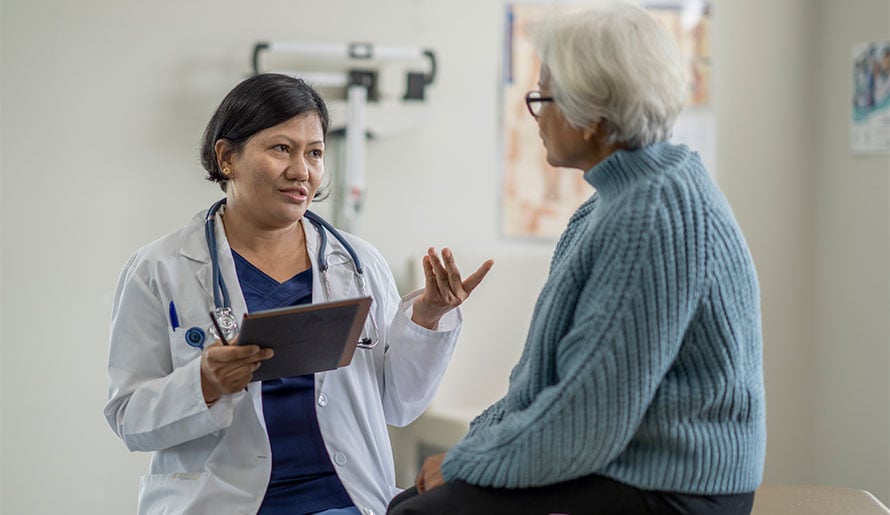Anal Cancer Signs and Symptoms

Anal cancer is a relatively rare and slow-growing malignancy that originates in the cells of the anus, the opening at the end of the rectum where stools pass out of the body during bowel movements. Most anal tumors are squamous cell carcinomas that develop in the thin, flat cells that line the anus.
Early warning signs of anal cancer
Anal cancer symptoms can be elusive, and early-stage tumors often go unnoticed. As a tumor progresses, the first noticeable sign is often rectal bleeding or bloody stools. Because both are also symptoms of hemorrhoids—a far more common and less serious condition—it is important to promptly see a physician who can provide a proper diagnosis.
Common symptoms of anal cancer
In addition to rectal bleeding and bloody stools, the symptoms of anal cancer can include:
- Persistent changes in bowel movements, such as diarrhea or constipation
- Discomfort in the anal area
- A lump or mass at the anal opening
- Abnormal discharge from the anus
What does anal cancer feel like?
Some people experience pain, pressure or itching around the anus along with a persistent sensation of fullness, even after a bowel movement. Anal cancer can also cause unexplained fatigue.
What does anal cancer look like?
Bloody stools can have a bright red, black or tarry appearance, and blood may be visible on toilet paper or in the toilet bowl. Stools may also seem narrower than usual.
Symptoms of advanced anal cancer
As anal cancer progresses and spreads to nearby tissues or distant organs, the symptoms can become more severe and pronounced. Possible signs of a late-stage anal tumor include:
- Intense anal pain
- Profuse rectal bleeding
- Bowel obstruction
- Unintended weight loss
Frequently asked questions (FAQs) about anal cancer signs and symptoms
The following FAQs-related article provides additional information about the signs and symptoms of anal cancer:
Benefit from world-class care at Moffitt Cancer Center
At Moffitt, we will take your anal cancer symptoms seriously. The multispecialty team in our Gastrointestinal Oncology Program will begin the diagnostic process immediately by performing a thorough evaluation. If you are diagnosed with anal cancer, we will develop an individualized treatment plan to help you achieve the best possible outcome and quality of life. As we oversee every step of your progress, we can coordinate with your primary care provider to help ensure seamless continuity of care after you complete your treatment at Moffitt.
You can request an appointment with a specialist at Moffitt by calling 1-888-663-3488 or submitting a new patient registration form online. We provide each new patient with rapid access to a cancer expert, and we do not require referrals.
